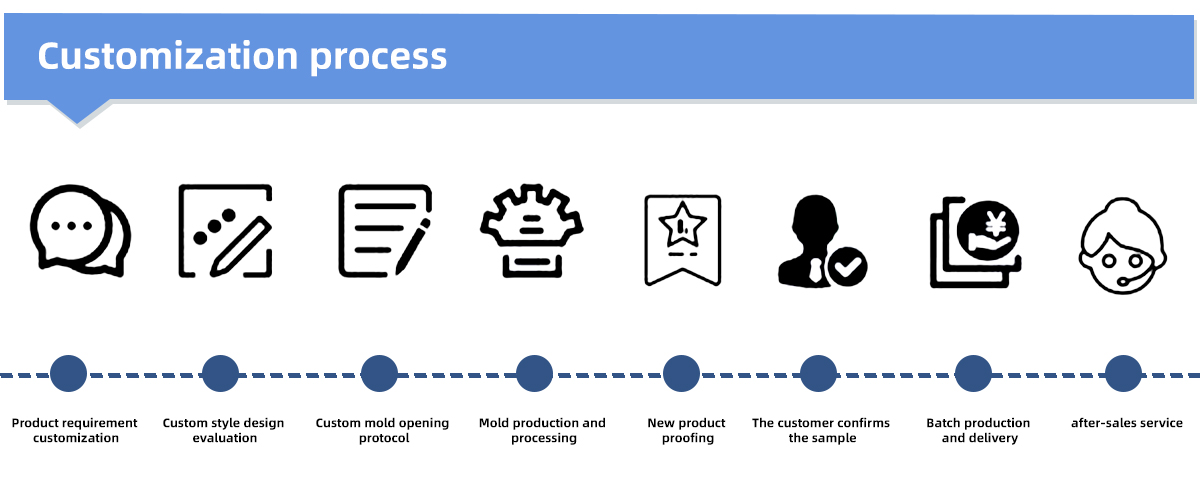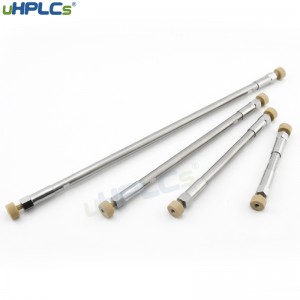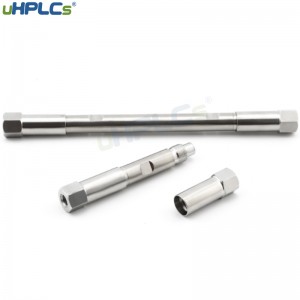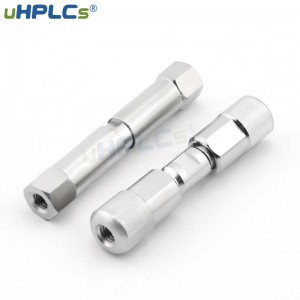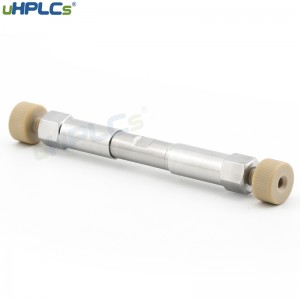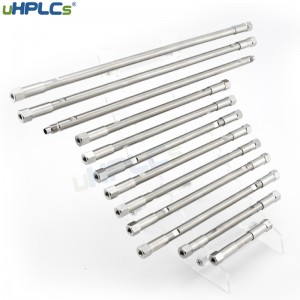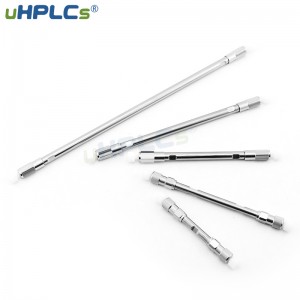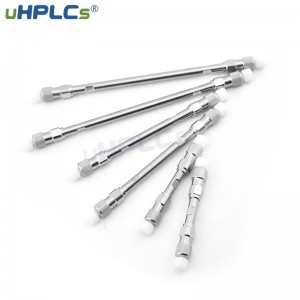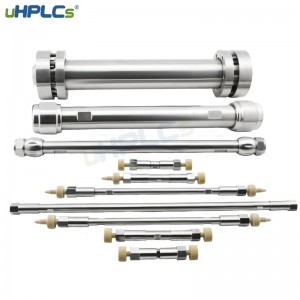diol column, 5 µm, HPLC Analytical Columns, 4.6*150mm, USHA
UHPLCS diol column hplc, the stationary phase is based on ultra-pure porous silica gel matrix, through the use of a unique fixed phase bonding technology, the use of 1, 2–hydroxypropyl functional groups containing organosilane bonding. The Diol column is more stable than the traditional normal phase column, such as NH2, and SiO2.
Advantage
* Separation of polar and basic compounds using silanol residues.
* Ultra inertness and high durability
* Excellent separation rate and pressure
* More stable than the traditional normal phase columns, such as Silica, and Amine.
* Could be used in reverse phase analysis.
* Similar polarity to Amino.
* Good selectivity without excessive retention.
* Improved peak shape versus bare silica.
Diol HPLC Columns, 5 µm, Analytical Columns, 4.6*150mm
Diol silica gel can be applied to normal phase chromatography and has the following unique properties compared to ordinary silica gel.
Ordinary bare silica gel: Si-OH (silicon hydroxyl group) strong adsorption, negative charge
Diol silica gel: C-OH (alcohol hydroxyl) mild adsorption, neutral charge
1. Same separation performance as bare silica gel, slightly less polar in a positive phase.
2. Strong adsorption properties for phenolic compounds.
3. No strong adsorption like bare silica gel, unique separation performance for basic compounds.
Amino silica (NH-Silica) is an effective method for separating basic compounds in this field. Still, it cannot be used under certain conditions due to the following problems.
1. Amino silica has a strongly basic surface and is unsuitable for separating alkaline unstable substances.
2. Amino silica reacts with ketones and aldehydes, so compounds containing such groups and mobile phases, such as acetone, must be avoided.
3. Acidic compounds have strong adsorption on amino silica gel and cannot be eluted from the column bed.
As a new separation method, Diol-based silica gel compensates for these problems with its unique properties.
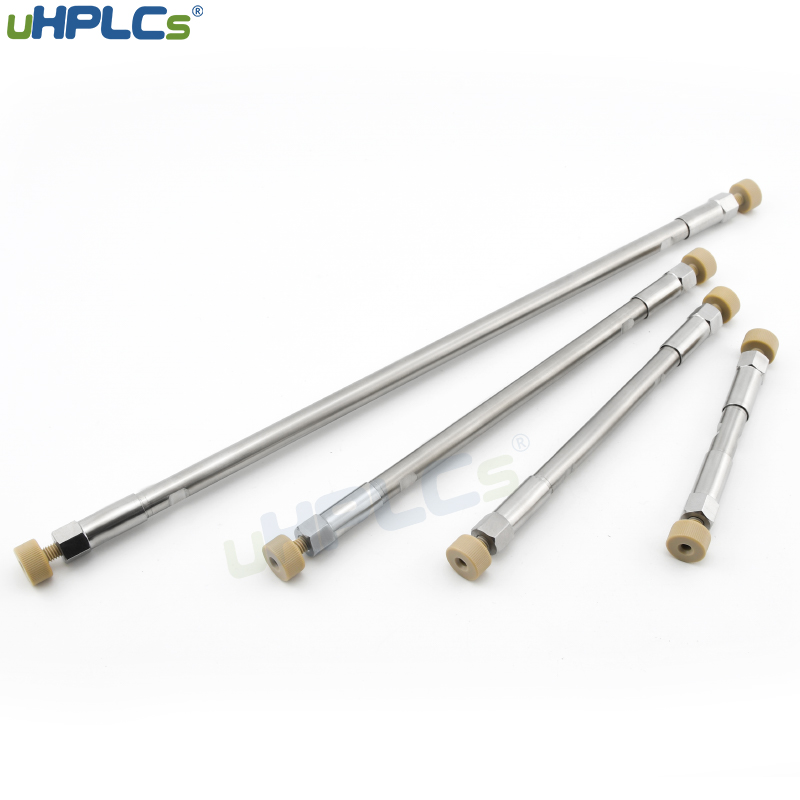
FAQ
1. Because I don’t know that the mobile phase has been exhausted, and the liquid chromatography column has been empty for about one night. Can the column still be used in this case? If so, how should it be regenerated?
- It can be used! There may be air bubbles in the column, but after that, use a more mobile phase to flush and see that the baseline is stable, and there is no problem. Rinse the column with the preservation solution at a low flow rate for a long time, and then check the column efficiency to see if the column recovers. It is best to set the minimum pressure limit for the liquid phase so that the column will not be damaged due to the loss of the mobile phase.
2. During gradient elution, if the entire time program is longer, the reproducibility of the retention time will be worse, especially since the reproducibility of the last peak is more obvious. I guess it is caused by the error of the flow itself, but how to avoid it as much as possible Does The appearance of this situation make the retention time reproducible better?
- The ambient temperature and column temperature should be well controlled, and the volatile mobile phase should be properly sealed. At the same time, the drift of retention time is also related to the accuracy of the instrument.
3. Is there any skill in the installation of the HPLC column? As long as it is guaranteed not to leak? And how to measure the so-called dead volume?
- There are not many skills in installing the HPLC column. As long as the joint and the column head match, it is enough to tighten it tightly without leaking, but be careful not to tighten it too tightly so as to damage the thread. The so-called dead volume is the total volume from the sample injection to the flow through the HPLC column when the completely unretained substance comes out of the peak, and is generally determined by the peak out of uracil, which is very polar. The dead volume includes two parts: the column volume (the cavity volume that the solvent in the column can occupy) and the extra-column volume.
When you buy a chromatographic column from a manufacturer, the column volume is already fixed, and what you can try to avoid is the extra-column volume. The dead volume in the injector, the length of the capillary, the tightness of the connection between the capillary and the column, and the size of the dead volume created by the guard column or in-line filter all have an impact on this. When the sample is inside the column, apart from diffusion, there is also component separation caused by the action of fillers; but if the sample is outside the column, then only diffusion is the factor that reduces the column efficiency. Therefore, to achieve good separation efficiency, the extra-column volume should be as small as possible.
The peak sometimes protrudes and sometimes tails. Generally, it is not the problem of the HPLC column, but the function of the sample and the HPLC column packing. It can be said that if the choice of HPLC column type is no problem, the key is the choice of chromatographic conditions. Including injection volume, sample solvent, mobile phase composition (including additives), mobile phase pH, and column temperature, all have an impact on peak shape. In addition, for the determination of peptides with larger molecular weights, it is very important to equilibrate the HPLC column with sample aging. Substances with larger molecular weights require longer equilibration time. Peak shapes may also be abnormal if the column is not properly equilibrated. Therefore, it is best to list your specific measurement conditions, and it is also convenient for targeted analysis of the reasons.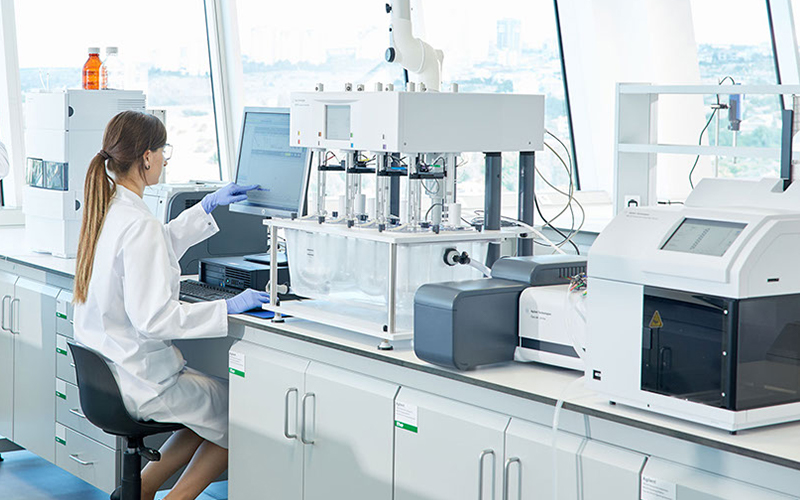
uHPLCs special services:
1. All columns will be tested before delivery and a column efficiency report will be provided.
2. Column loading service is available.